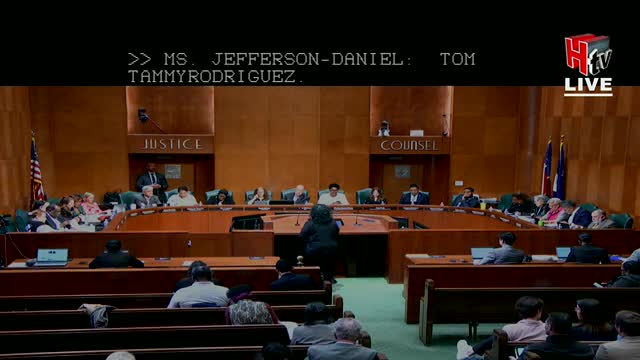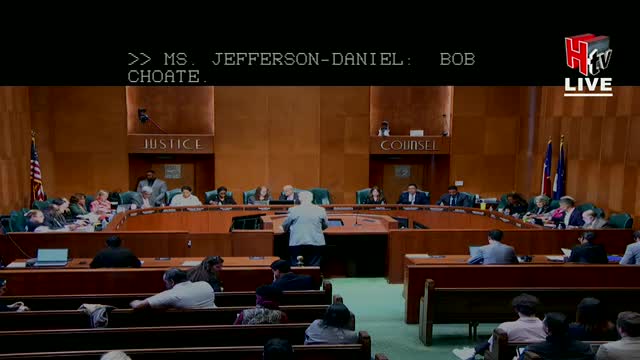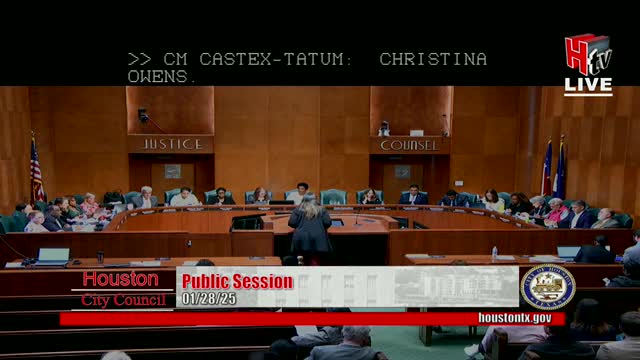Article not found
This article is no longer available. But don't worry—we've gathered other articles that discuss the same topic.

Couple says HPD response was insufficient after $40,000 of tools stolen from storage unit; council members pledge follow‑up

Advocate questions $8.24 million Amazon purchasing authority; requests more specificity on Choice Partners contract

Residents urge council to fund Cottage Grove West infrastructure project after repeated flooding, narrow streets

Residents press Houston mayor and council for clarity after reports of ICE activity; mayor says HPD not participating in federal enforcement

Houston food truck operators and council members call for faster health‑department approvals

Houston mayor proclaims Jan. 27 International Holocaust Remembrance Day, community leaders urge education against antisemitism

Local training and apprenticeship advocates seek city meetings to expand workforce programs in Houston

